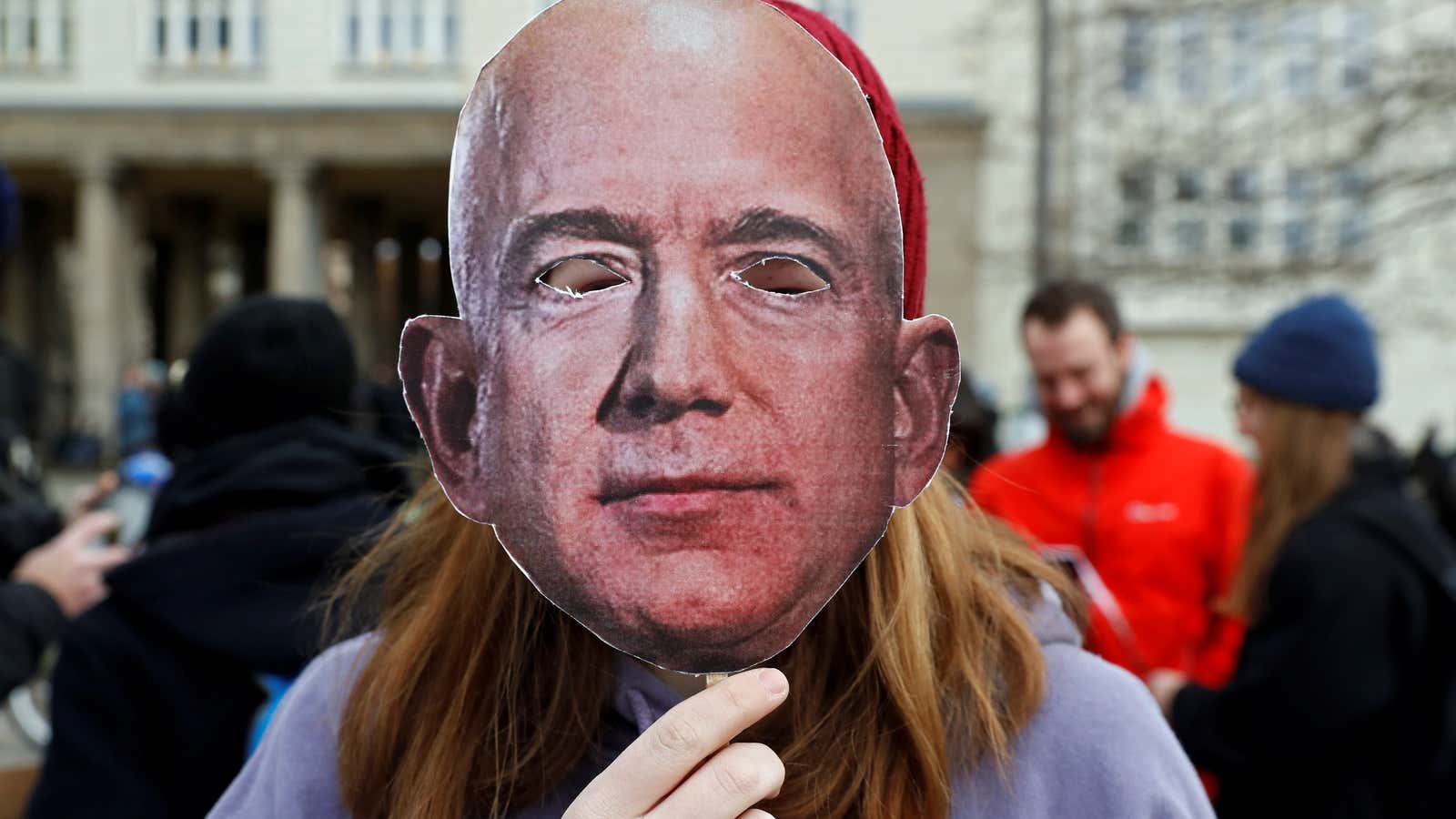“If you do it right, a few years after a surprising invention, the new thing has become normal,” Jeff Bezos told Amazon employees this week in a memo announcing the end of his reign as CEO at the company where he has spent nearly three decades disrupting shopping habits. “People yawn,” he added. “That yawn is the greatest compliment an inventor can receive.”
If only Bezos had tried to induce yawns not just as an inventor but also as an employer. He might have, for example, made Amazon the kind of place that helps employees in entry-level jobs work their way into a solid middle-class life, with strong wages and fair benefits. Talk about boring.
He wouldn’t have received nearly as much attention as he has by earning $90 billion during a public health crisis of biblical proportions—enough to hypothetically “give every Amazon employee $105,000 and still be as rich as he was before the pandemic,” as Robert Reich, the economist and former US Secretary of Labor, recently noted. Nor would it have inspired outrage of the sort that was sparked by revelations that Amazon, currently valued at $1.7 trillion, stole $61 million in tips from its Amazon Flex delivery people.
If he had accepted unionization drives at Amazon and its Whole Foods grocery chain, where employees are seeking pandemic hazard pay and better safety precautions in the workplace, Bezos wouldn’t have seen his leadership team and in-house lawyers get outed for attempting to run a smear campaign targeting a union organizer. He also might have avoided getting called out by the media for hypocritically insisting on an in-person union election after raking in billions by serving customers who have wanted to shop by mail throughout the pandemic.
Granted, cracking the code that allows capitalism to work for everyone and not the few, on the massive scale at which Amazon operates, would not have been a yawn-inducing behavior at first. If the company’s genius for logistics had been applied with a view to eliminating worker injuries, or ensuring that none of its hourly employees qualified for food stamp programs, that would have been huge news for a while. Then, in time, it might have persuaded other businesses to adopt similar models, leading to new norms, and the high praise of a gaping yawn.
Sadly, there’s no reason to believe that Bezos, post-Amazon, will bore us with a rethink of the employer-employee social contract that would improve the economic forecast for hundreds of thousands of families.
Instead, he plans to focus on his other passions, including The Washington Post, his Blue Origin space company, the Day 1 Fund, and the Bezos Earth Fund. The latter two endeavors are examples of the kind of problematic philanthropy that might make established non-profits and activist groups beholden to his vision while allowing him to—paraphrasing Winners Take All author Anand Giridharadas—cast himself as a hero in an unequal society that he played an outsized role in creating, while blocking efforts to implement a tax to help redistribute billionaires’ wealth.
But should he decide to induce a bit more boredom before he steps away, an easy place to start would be to welcome what might become Amazon’s first US-based employee union, in Bessemer, Alabama, where workers will vote on whether to form a union at the end of next month. That organizing event could lead to dozens or hundreds of opportunities for Bezos to do the same for warehouse and Whole Foods employees across the US, according to Rebecca Givan, the labor studies professor at Rutgers University who recently told the Washington Post that “[c]ollective action is contagious.”
Just think of the monotonous press releases about how Amazon’s leadership has pledged to work closely with newly unionized employees in Florida. In New York. In Georgia. I’m half-asleep already!
